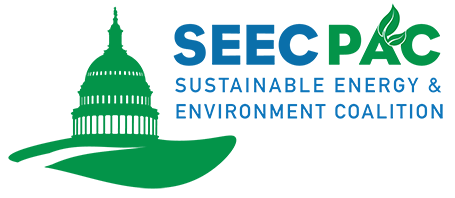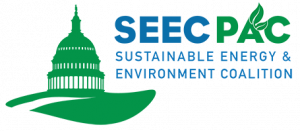The numbers are in: As of last week, the United States had the worst air quality levels in the entire world.
Thanks to wildfires in California and Oregon, cities all across the west coast are experiencing some of the worst air quality in the world. Air particles from smoke can be incredibly small, allowing them to get inside the lungs, passing through the bloodstream to reach the heart and the brain. This can cause serious respiratory illness and can be fatal for anyone with pre-existing respiratory conditions like COPD or COVID-19. Even for healthy individuals, long-term exposure can result in heart attacks, strokes, or mental health issues.
Residents in the Bay Area have been under air quality warnings for nearly a month. Quite simply, these are unlivable living conditions.
But the impact of these catastrophic climate events isn’t limited to the Pacific states — emissions from the fire have spread to Nevada, Arizona, and even thousands of miles away in Washington DC where smoke blotted out the sun.
Wildfires have always been a way of life in the west — where occasional fires can be an important part of forest ecosystems. But the effects of climate change have supercharged these events, making them more frequent and deadly.
More extreme weather events like wildfires and hurricanes will test our ability to live in increasingly climate-ravaged conditions. It’s estimated that 162 million Americans will experience a decline in the quality of their environment through their lifetimes. By 2070, at least four million Americans could be living in areas considered to be the very fringe of human life, places that are increasingly on fire, drought-stricken, or battered by relentless storms.
The result would be millions of displaced Americans and a strain on resources that puts us all at risk.
The cost of doing nothing in the face of global climate change is mounting. The next four years are going to be a defining moment for our world and our country, which is why we are working around the clock to elect as many pro-environment SEEC members to Congress as possible this November.

